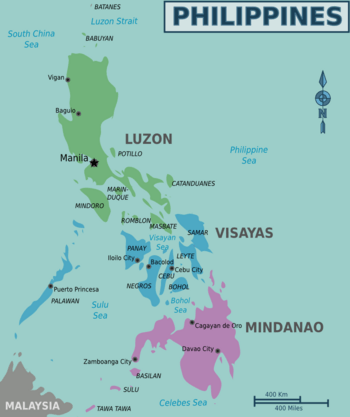MANILA – Hefty government investment in agricultural infrastructure next year is set to bolster a national drive under way in the Philippines aimed at increasing productivity and improving food security.
Creating a sustainable and competitive agricultural industry has been a key focus of the Philippine Development Plan, the government’s vision for inclusive growth. The plan also targets reducing food imports and reforming assets.
President Benigno Aquino said a significant portion of funds would be used to construct new farm-to-market roads.
The government is also pushing cash crop development as it moves to create a robust export market, particularly for the coffee industry, which is well-placed to enjoy a revival on the back of renewed interest from both the public and private sectors.
Boosting coffee’s contribution to agricultural output, which is dominated by rice, sugarcane and coconut production, is high on the leadership’s priority list.
Figures from the Department of Agriculture showed that farm output in the Philippines rose 1.4% in the first six months of 2013. The government expects agricultural output to grow by between 4.3% and 5.3% this year, up from 2.9% in 2012.
However, both output and growth remained fairly flat in the second quarter of 2013, with gains in poultry and livestock offset by a decline in the rice harvest.
Generating stability and steady growth across an industry that regularly faces challenges ranging from transportation and sustainability to volatile weather is a primary focus. Just this August, Typhoon Labuyo damaged crops valued at PHP571m ($12.91m) when it hit Northern Luzon.
 Dilapidated and damaged infrastructure that prevents farmers from accessing local markets is another difficulty. More than 12% of agricultural production is lost each year due to post-harvest inefficiencies, Proceso J Alcala, secretary of the Department of Agriculture, told OBG last year.
Dilapidated and damaged infrastructure that prevents farmers from accessing local markets is another difficulty. More than 12% of agricultural production is lost each year due to post-harvest inefficiencies, Proceso J Alcala, secretary of the Department of Agriculture, told OBG last year.
The government has already embarked on a wave of road construction and improvement projects, investing PHP8.3bn ($188m) in new farm-to-market roads this year. A total of 1147 villages have been connected to major highway networks since 2011, according to President Aquino.
Arnel Casanova, president of the Bases Conversion and Development Authority, told OBG that plans to use 100,000 ha of idle military baselands for agricultural production would also form a key component of the country’s bid to add value to the sector.
At the same time, the proceeds from the lease and development of the land will benefit the armed forces of the Philippines modernisation programme. “We are exploring partnerships with agricultural companies to transform idle lands of the military into productive agricultural farms,” he said.
Among the areas of focus for the government is the coffee industry. The country now supplies less than 1% of the world’s coffee, having once been the fourth-largest global producer of the commodity.
Local growers also fail to meet domestic demand – Filipinos consumed 70,000 tonnes of coffee in 2012, while local production reached 30,000 tonnes.
 Keen to revive the industry, the Department of Agriculture formulated a roadmap for coffee growth during the first general assembly of the Philippine Coffee Alliance in July 2013. The “Master Plan for the Philippine Coffee Industry” highlighted gaps in the value chain and management practices, while also focusing on the importance of support services, such as financing and logistics.
Keen to revive the industry, the Department of Agriculture formulated a roadmap for coffee growth during the first general assembly of the Philippine Coffee Alliance in July 2013. The “Master Plan for the Philippine Coffee Industry” highlighted gaps in the value chain and management practices, while also focusing on the importance of support services, such as financing and logistics.
Mounting interest from the private sector bodes well for the coffee industry’s prospects. Nestlé, which is the country’s largest buyer of Robusta coffee beans, recently opened its second “coffee centre of excellence” in Lipa City, Batangas.
The facility will focus on improving the quality and quantity of crops through research and training.
John Martin Miller, chairman and CEO of Nestlé Philippines, told OBG he was confident that reviving the coffee industry would benefit farmers, investors and consumers. The industry giant is channelling $30m to further expand technical transfers and assistance, boost coffee seedling production and support buying efforts in the Philippines until 2020.
“The Philippines is an ideal environment to grow coffee,” he said. “It has the right topography and weather conditions, and our plans are in line with the goals of the government.”
Read more: http://www.oxfordbusinessgroup.com/economic_updates/philippines-targets-sustainable-growth-agriculture










